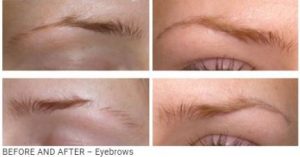Surgery is generally a last resort for treating snoring and sleep apnea after non-invasive treatments such as lifestyle changes, using a dental appliance at night, and CPAP have been tried. However, when appropriate, there are a number of surgical options that can very effectively treat sleep apnea and snoring, depending on what is causing the symptoms. Dr. Larry Weiss explains the causes of sleep apnea and how they may be surgically treated.
Surgery is generally a last resort for treating snoring and sleep apnea after non-invasive treatments such as lifestyle changes, using a dental appliance at night, and CPAP have been tried. However, when appropriate, there are a number of surgical options that can very effectively treat sleep apnea and snoring, depending on what is causing the symptoms.
One possible cause of snoring is nasal obstruction. In particular, you may have a deviated septum, which is a condition in which the wall separating the two sides of your nose is crooked or bent. To correct this condition, a procedure called septoplasty straightens out the septum and increases airflow into the sinus cavity. This surgery can help you breathe more easily through your nose and reduce the amount of snoring you experience.
Past the septum, inhaled air passes through the turbinates, soft tissue structures that help warm and moisturize air as it passes through your nose. If they become enlarged, they can restrict airflow and contribute to snoring. A surgical reduction of these tissues opens blocked passageways, allowing you to breathe better and snore less.
On its way into the lungs, air must flow past the soft tissues of the back of the mouth and the throat. If these tissues are too thick, then during deep sleep, they can collapse partially and cause snoring or completely block airflow, and cause obstructive sleep apnea (OSA).
When soft tissue in the throat is blocking airflow, a common treatment for obstructive sleep apnea is a procedure called uvulopalatopharyngoplasty (UPPP). UPPP involves removing tissue from your palate, throat, and upper airway. The goal of this surgery is to widen your airway by removing excess tissue that might be causing obstructions when you sleep.
Another cause of snoring and sleep apnea can be enlarged tonsils. If this is the case, which can happen in children as well, doctors can remove or significantly reduce the size of one’s tonsils.
In some people, the base of the tongue is excessively large, which may relax and block the airway during sleep. In this case, there are procedures that can be done with to reduce the size of the bulk of the base of the tongue, which often helps with snoring and sleep apnea. Some procedures allow this to be done via an in-office procedure.
With so many options available, there is no reason to suffer with snoring and lack of sleep due to OSA. An ENT specialist can do a thorough evaluation and develop an appropriate treatment plan to help you get a restful and full night’s sleep.


